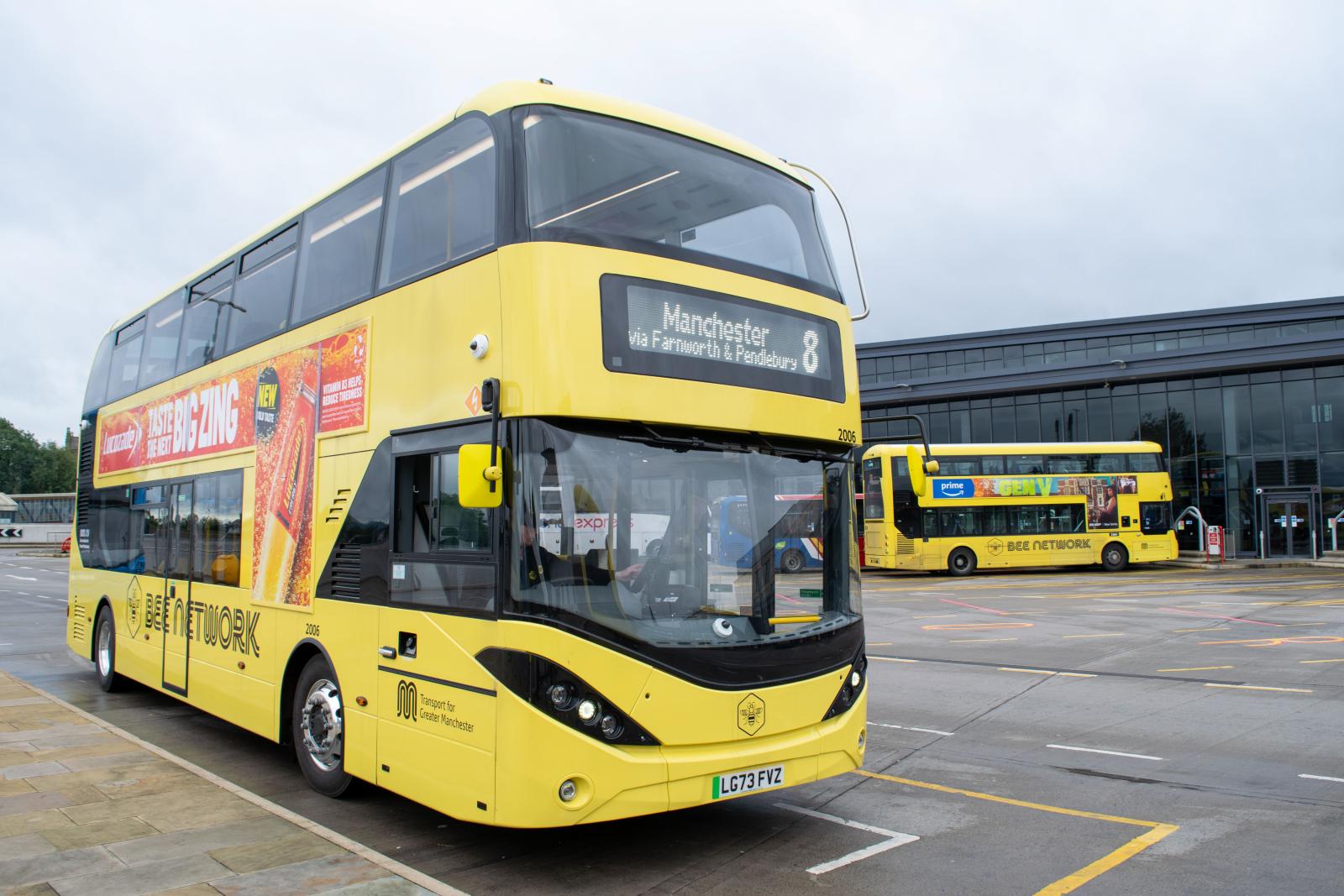It’s time to deliver a green bus revolution

Seeing new and quiet Zero Emission Buses (ZEBs) on the roads of our biggest city regions is a fairly often occurrence these days. So, it might come as a surprise that only 7% of buses in metropolitan areas are ZEBs. With ambitious target dates of decarbonising bus fleets fast approaching, how can our cities bridge this major gap and bring about a green bus revolution?
In one of our previous reports, A Smoother Ride – Can capital investment deliver more efficient bus services?, we explored the impact of capital investment in ZEBs, including on patronage growth. Having established the far-reaching benefits of investment in ZEBs, our new report A Smoother Ride - Unlocking a green bus revolution brings together evidence and insights from bus manufacturers, operators and transport authorities to set out what action must be taken to unlock an accelerated and sustainable pathway to ZEB delivery.
Our bus networks are in a time of significant change, with many metropolitan areas exploring franchising, the new Government promising reform, and the whole market seeking ways to reverse the trend of patronage decline. Meanwhile, over the course of the last 15 years, operators and authorities have been working towards decarbonising their fleets to achieve net zero commitments.
All of UTG’s seven Principal Members have committed to operating a fully ZEB fleet, by 2036 at the latest, as summarised in the timeline below.
Whilst delivery of ZEBs has accelerated over the last years, it is not yet at a sufficient rate to meet our member’s decarbonisation goals. An estimated 29,000 buses in England still need to switch to zero emission operation to achieve a fully zero emission fleet. Of these, around 15,000 ZEBs are required in London and the Metropolitan areas alone.
Achieving our member targets for zero emission fleets by 2036 would require around 1,200 ZEBs to be delivered per year across these areas. However, as some of our members have earlier targets, ranging from 2030 to 2035, this could mean delivering up to 1,400 new ZEBs per year.
Research with bus manufacturers, undertaken by EY for this report, indicates that the UK supply chain could meet the UTG member requirements for decarbonising their fleets. However, expanding the production rate to cover demand across England or accelerating the UTG member vehicle requirements would see the domestic supply chain exceed its historic maximum capacity. Manufacturers need certainty of forecast numbers to be able to invest in the required resource and capacity to deliver this. They also highlight early engagement, planning and sustainable funding as critical to a smooth rollout, alongside joined-up forward planning.
ZEB roll out of course goes beyond just the manufacturing of the vehicles. In order to meet their ambitious targets, our members need policy clarity, funding certainty and support to unlock issues associated with ZEB infrastructure and access to the grid.
Manufacturers, operators and authorities stress the importance of clear government policy to build confidence in the supply chain and among potential investors. Government should provide certainty on the end of sale date for new, non-zero emission buses, to give confidence to manufacturers and empower operators to bring forward plans to decarbonise their fleets. The end of sale date must be proportional and be accompanied by a long-term and sustained funding settlement to support the ongoing procurement of ZEBs.
The majority of ZEBs in operation have been purchased with the support of government funding. UTG members do not yet have funding secured to meet their committed net zero fleet decarbonisation target and there are no dedicated funding streams or recognition of the scale of funding needed beyond spring 2025. Plans for a longer-term stable funding stream for ZEB procurement must be set out in order to avoid the current boom/bust approach and give confidence to private investors. This should see the government move away from the current short term competition based funding pots, incorporating sufficient funding for ZEB delivery as part of long term transport settlements.
Finally, the task of enabling ZEB operations through the installation of the necessary infrastructure is complex and requires considerable levels of investment and yet is absolutely critical. The lead time for adequate power supply has been identified as a key risk by authorities, operators and manufacturers alike. The scale of upgrade requirements in certain depot locations is constraining the ability to quickly increase the volume of ZEBs deployed. Simplifying and creating a nationally consistent process for installing charging and refuelling infrastructure at depots must be a priority. Working with Ofgem, Government should introduce a new statutory duty on Distribution Network Operators (DNOs) to prioritise grid infrastructure that will deliver social and community benefit. This work must recognise the integral role of local and regional authorities, who should be given greater control over the planning of power infrastructure and associated planning tools, supported by adequate upskilling and funding.
The challenge ahead is considerable and time is running out. With the manufacturing sector confident they are able to step up to meet the demand and authorities and operators ready to face up to the challenge, positive rhetoric and potential now must be supported by the right funding, policy and engagement instruments. Without urgent progress across all of these policy areas, it is unlikely that current decarbonisation targets will be met.
The prize of accelerating the transition is considerable and could be of significant support in delivering on each of the Government’s five missions centred on economic growth; accelerating to net zero; safety; breaking down barriers to opportunity; and health. It’s time to grasp the opportunity and deliver a green bus revolution.
Monta Drozdova is Policy and Research Advisor at the Urban Transport Group

